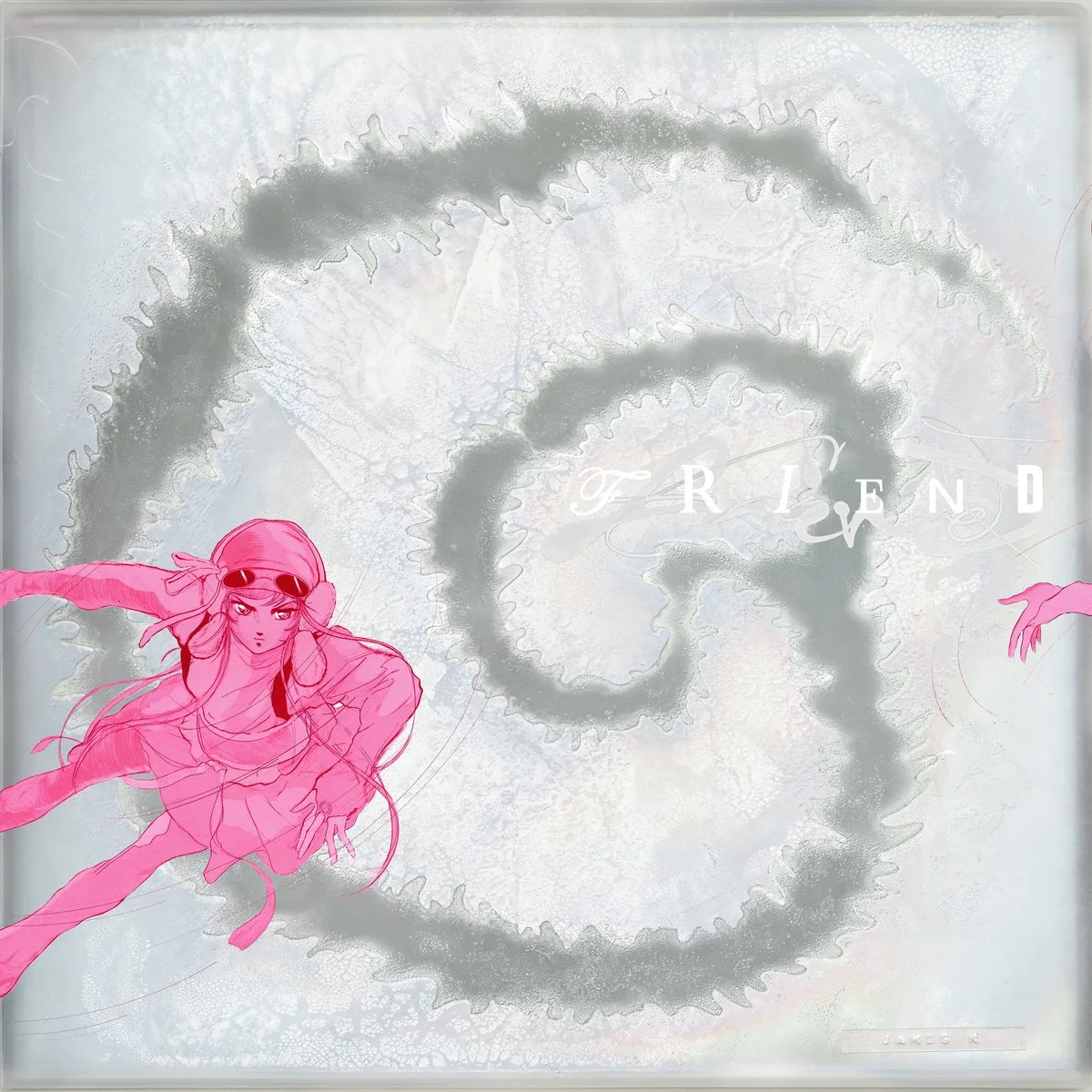by Devin Birse (@devvvvi.b)
Grounding the past, present, and future into an immediately modern rhythm, Friend by James K is a remarkably understated opus. It's an album that achieves so much without ever pointing it out, less a shock to the system and more a slow soak. Its brilliance is the sort that lingers with you the next morning as you walk down the street, slowly noticing how your feet match the rhythms of the drums as a wave of echoed vocals guides your eyes up past the trees, and out to the glass spires reflecting past the concrete. While K’s music has always flirted with dream pop, Friend is an album for the dreamers. One that pushes past creeping hypnagogia to create a vision of pop designed to send the listener drifting towards the future.
With past releases, K’s work felt exploratory. Pet played out like a reel of synth pop unspooled, stretched out and left in the sun. Its follow-up, Random Girl, was its inverse, a fractured piece of post-industrial pop built around K’s screech-shimmer guitar work. Friend is noticeably different from those two records, it’s full-blooded and defined, not an exploration of pop but a slab of pop. An admittedly dense and complex piece of pop, but one where K seems more confident than ever in her capabilities. That’s not to say her usual sound-scaping is gone, but rather that the divide between ambience and pop is clearer than ever. “Doom Bikini” is a glorious piece of hazed out psychedelia combining light doo wop sways with a recurring g-funk wheeze that builds to a glorious blast of pure noise chill. Single “Play” is a similarly impressive offering in its mix of shredding guitar work with liquid smooth dnb, and “On God” might be the purest pop she's ever gone. A brilliant mix of icy, Cure-like guitar lines with a chilled background swirl. It’s the closest she comes to the out-and-out hypnagogic pop of previous projects, but her keen production and pronounced vocals remove any sense of decay, leaving the track sounding vibrant and new.
That’s not to say the ambience is gone; K’s ability to craft rich oceanic soundscapes remains stronger than ever. Rather, it feels refreshingly new. While there are clear elements of trip hop echoing through the album, Friend feels dislocated from the current revival. This is not a revised take on the iconic Bristol sound but instead a shifting sonic language that merely bears part of its elements. Though songs like the glittery post-industrial ballad “Idea,2” may share Massive Attack's laid back beats and dreamlike atmosphere, the waves of dub are replaced by something far more ethereal. Glittering waves of synth and repeated glimmers of distant vocal shards echoing out into a further ambience.
K’s voice has always borne similarities to the soft, aching melodies of Grimes, but on Friend, her closest comparison is Elizabeth Fraser. Her voice acting as an aching instrument that appears as a brief light through her psychedelic tunnels. Even when she delves fully into ambient pop, something appears different from what's come before. On “Rider,” subtle signs of aching shoegaze and drone rattle against refracted vocals like breaths mixed with gasps. ‘Peel’ carries similar shards of noise, light glints of reverberation piercing through smooth house beats to perform a subtle contrast that comes together to form an intangible piece of crackling pop.
When it's all taken together, Friend forms a truly beguiling slice of art pop. One that is in communication with the past yet never indebted to it. Even at its most nostalgic slices, what came before is rendered firmly as before. Midway through the masterful “Hypersoft Lovejinx Junkdream,” K breaks into a cover of Bôa’s “Duvet,” the track slowly conforming into the melancholic shapes of the song. With her clear anime aesthetics and gorgeous vocals, it’s a perfect fit for K. Like the protagonist of the anime, (“Duvet” played the theme to Serial Experiments Lain) K has often appeared as a ghost in the machine. Her music a fractured memory of some lost past and future that could never be, reproduced through the final whirrs of a dying machine. Yet when K sings those opening lines, as cliched as it may sound, it's like hearing the song for the first time. That’s what Friend achieves so beautifully. A repurposing and rebuilding of the past through new machinery. Instead of merely recreating the affect of the sounds K has built something new out of them.
It may be long, ambient, and dreamy, but the usual effects don’t occur when you find yourself lost in Friend. Rather than dreaming of a faded out past when you listen to a song like “Blinkmoth (july mix),” the present begins to shape itself towards the something new. Like those before her, K recognises that art pop and electronica are not tools to recreate the past. They're a way to imagine and construct the future.

